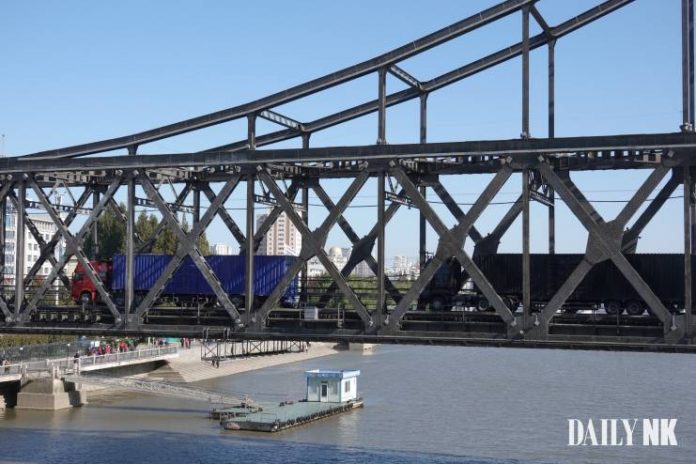
North Korean authorities recently completed measures to merge or close underperforming trading companies. The authorities are now trying to invigorate trading companies, issuing orders to prepare for the start of trade.
According to a Daily NK source in North Korea on Monday, North Korean authorities finished merging and closing underperforming trading companies as of June 30 before carrying out an internal review of the effort.
Since March, North Korean authorities have been merging trading companies that have not taken any part in import or export activities over the last several years into larger trading companies connected to the Cabinet or select government agencies.
This structural readjustment appears to be part of efforts to restore North Korea’s unitary state-led trading system.
Daily NK previously reported that although North Korean authorities threatened trading companies with mergers, the effort was running into difficulties due to debts that emerged during the merger process.
Initially, the concerned parties discussed a plan for larger trading companies to assume 50% of the debt of the smaller trading companies they absorb, with the state assuming the other half. However, Daily NK’s source said that with the government judging itself unable to assume its share of the debts, the larger trading companies agreed to assume the entire debt of the smaller companies they absorb on the condition that the state expands trading opportunities.
Most of the larger trading companies that can assume the debt of smaller entities operate under the auspices of agencies such as the Ministry of State Security, Ministry of Social Security and Ministry of Defense.
Accordingly, small trading companies that were affiliated with regional administrative bodies were closed after having their trade certificates — or waku — confiscated.
Meanwhile, on Friday, the Ministry of External Economic Relations ordered regional trade bureaus and trading companies to prepare for trading, giving them a list of desired imports. Essentially, the order expands shipboard trade through the port of Nampo in return for companies including in their imports a list of items designated by the state.
The first thing on the North Korean authorities’ list is reportedly medical supplies, followed by factory production supplies. After that come foodstuffs to stabilize market prices, including grains, sugar and soybean oil.
As recently as early this year, the authorities were issuing frequent orders to import construction supplies. This time, however, there are no orders for construction supplies, with goods related to the “people’s economy” taking priority.
Even North Korean authorities appear cognizant of public discontent over drug shortages — which have recently worsened due to COVID-19 and the rampant spread of waterborne diseases — and rising market prices.
However, small regional trading companies have been excluded from trading activities that may begin in the immediate future.
“The authorities are also accepting import plans from trading companies under regional trade guidance bureaus, but they are [not to be implemented] in the immediate [future],” said the source. “I think smaller trading companies will be able to take part in trade when China-North Korea freight train service restarts after China’s COVID situation improves a bit more.”
Translated by David Black. Edited by Robert Lauler.
Please direct any comments or questions about this article to dailynkenglish@uni-media.net.

















